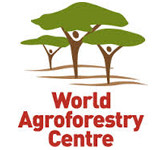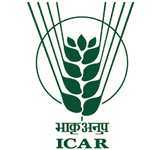
Vigyan Bhavan & Kempinski Ambience
10 - 14 February 2014
Delhi, India
blog

In the forest communities of Africa, a division of labour has long been clear among men and women. Women have typically been in charge of feeding the family through food crops cultivation with their diet completed with non-timber forest product (NTFP) collection, while the men helped to clear the food crop plots and concentrated more on cash crop cultivation and hunting. NTFP gathering and food crop cultivation were mainly for domestic use. But gone are those days! Nowadays, the opening up of remote areas, better access to urban markets and new opportunities of income have motivated women as well as men in forest communities to be actively involved in the sale of NTFPs and agricultural products in order to make more money.
“Unlike in the past, one can say things are improving for the best for the rural woman” says Mr Kira TONGO Boniface, a Bantou native from Petit-Pol village in the East Region of Cameroon, during a gender-segregated focus group discussion (FGD) in his community. He claims there are so many activities – agriculture, NTFP gathering, etc. – the rural woman is involved in presently, which provide her with daily income to sustain her family. Is this really the case?
Interestingly, information obtained through gender-segregated FGDs showed that men and women have a similar access to NTFPs in the wild, with restrictions occurring only on plots of land under cultivation or in fallows, where in general the land owner and his or her close relatives have exclusive access to these products. However, the men and women who participated in the discussions expressed having different preferences for forest products. The women take more interest in NTFPs such as Bush mango, for which they are the primary gatherers, processors and sellers. Fewer men are involved in this activity. Those involved say they do to raise income when they are in dire need for money while some do it as a form of assistance to their wives when they are out of activities. Men are much more actively involved in other forest-related activities such as bush meat hunting and small-scale logging.
Nowadays, NTFPs are more valued because the revenue they provide is becoming increasingly important to rural communities. But then, some hindrances – the seasonal nature and unpredictable productivity of NTFPs, lack of experience by traders, limited access to processing technologies, poor marketing strategies and inadequate market information, etc. – arise! This weighs on the amount of income realised from NTFP sales.
“Though NTFP gathering and sale are important and profitable to some extent, we cannot rely solely on them for our survival”, says Madam Ndimba, a Bulu native from Metylkpwale village in the South Region of Cameroon. “We can’t eat only (?) NTFPs every day, we need to diversify our diet, we need money when NTFPs are not producing and money from NTFP sale is not enough to provide income for the family throughout the year. We need more money. As a result, we expanded our agricultural activities (more plots of farmlands were open, more crops were planted) – which is now the principal activity – primarily for subsistence and secondly as a means to raise income for the household” she said.
Because of the increasing cash flow from NTFP gathering and food crop cultivation and sale, men are becoming interested in these “women’s businesses”. When asked why, Mr. Menguele Jean, a Bulu native from Ngon village, South Region of Cameroon, replied: “cocoa produces just once a year and before production we need money for farm maintenance and also for family upkeep. We therefore, decided to open larger plots in order to produce more food crops too for sale.” This new drive for income over time has led to more labour for the women who are expected to cultivate larger plots while maintaining their demanding daily house chores.
During a FGD in Melambo village in the East Region of Cameroon, Mrs Adrienne, a newly wed lady complained that she laboured more for money, yet earned less than she thought she would. She said: “we the women, who do most of the labour, get to remain retailers of NTFPs and food crops with very little profit, but the men – natives and non-natives alike – have become more of wholesalers and are enjoying most of the profit without labouring as much as we do”. As a result, the respective share from the sale of NTFPs and agricultural products between men and women needs to be renegotiated.
Photo: Family in Kouedjina,East Cameroon collected bush mango for sale as a family business
Blogpost by Yvonne Kiki Nchanji – Consultant/Gender Fellow, Center for International Forestry Research-CIFOR (Yaoundé, Cameroon) – ynchanji(at)gmail.com
Photo by Camille Dehu
|
This post is entry nr #17 in our #WCA2014 blog competition. The five blogposts with the most and highest votes will receive a signed copy of the book “Trees for Life”. The most popular blogpost will get an iPad.
This blogpost received 142 votes, with an average score of 5 (out of a max of 5).
Follow our #WCA2014 social reporting teamfollow our social reporting team via the #WCA2014 tag on Twitter, our blog and our Facebook page.
|






18 People have left comments on this post
Non-timber forest products: the way forward for the rural woman?
This is a reality in the forest regions. it is an economic activity that strengthens the life of the local people but what about the local people of the savanna grasslands who do not have these NTFP and concentrate most in food crops like maize, beans, groundnuts, potatoes etc…? See also their own livelihoods.
Thanks
As an anthropologist & frequent visitor to most African villages particularly in the West/Central Africa, I must say your article is very interesting because it’s factual. I shall be recommending your article to some of my students. Well done.
I particularly find this project interesting in the following ways.
– rural development with proximity of natural resources (NTFPs),
– it is inclusive (involvement of both genders),
– really community based and sustainable for indigenous persons,
– there should be incentives to encourage the women to get into wholesales like the men.
Good piece
It is interesting to note that women have been able to make so much money in NTFP, to the extent that men are now interested in them. The women have been able to show their relevance and ofcourse encourage other women that the place of the woman is not just in the kitchen. I am highly moved by this finding and hope that it gets better and wider.
It is a good projet . This projet is up to day.
As nutritionist, I find your project very interesting. I also think that for forest dependent peoples, NTFPs play an important role in the food security. For women in particular, it is an important source of food for their house, but they can sell some, and get money to complete their diet, with other source of nutrient that they have to buy. The valorisation of these NTFPs by women, for women can be the key of wellbeing for rural women.
It is a good projet . This projet is up to day. The projet contribu to ameleor insecurty food and reduce poverty at the Contrie
A way forward out of dependency for the women .
Plus it also helps in educating the rural communities about sustainable farming.
As the icing on the cake, so much has evolved over time for the women but much is yet to be done
It’s a very good piece of work and the fact that it focuses on rural women and the economy makes it very interesting.Moreso this will help enlighten our rural women.well done kiki.
Good, well written.
As an anthropologist what stood out for me is that, rural women are creating new innovations to ameliorate their livelihood in forest communities. The women are diversifying their agricultural production. Taking advantage of market proximity and increasing their income. Impressive. Knowledge is indeed powerful.
Good and well covered information
Over 70 per cent of the world’s poor people live in rural areas and most of rural women and men rely on agriculture. However, rural women have limited access to land, credit, information and technologies, and they face difficulties in terms of mobility and political participation.For that reason, gender inequalities and discrimination should be addressed by focusing on areas which can empower women economically and socially, including access to land, water, education, training, markets and financial services.Well done Yvonne!
tres formidable ma fiochi, way to go
trees are the main thing holding most third world countries economy together. but these in most cases have already run out. cash crops are the next best thing. unfortunately these are controlled by the super powers that buy them, because they can process them. these are also seasonal making it only useful during peak seasons. what survives the familes and the population is the hard work of our women. who think and make all ways to get us through. I go for reviving the agropastoral shows and helping these women with the technology, resources and support needed for them to show us what they are capable of doing
Nice piece of work . The processing of NTFPs is a user right to rural people which has facilitated the improvement and diversification of rural livelihoods. Indeed, there is a great way forward for rural women!!!